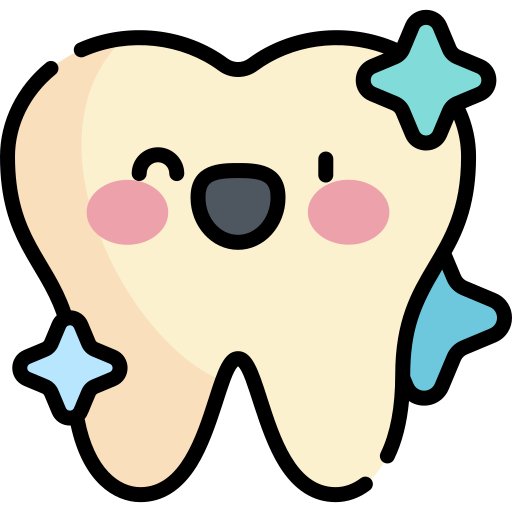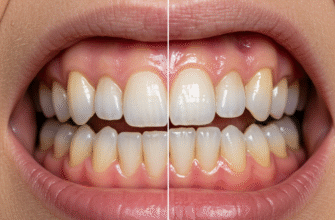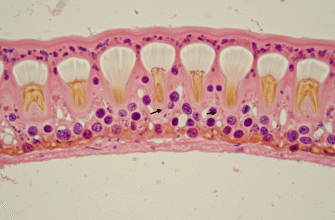Many of us carry a deeply ingrained belief: if a little effort is good, then a lot more effort must be fantastic. This logic often seeps into our daily routines, and unfortunately, our oral hygiene practices are not immune. The idea that vigorously scrubbing your teeth, applying maximum pressure with your toothbrush, will somehow achieve a superior level of cleanliness is a widespread myth. It feels intuitive, does not it? Like you are really battling those sugar bugs and coffee stains into submission. But when it comes to dental health, more force does not equate to more clean. In fact, it can be quite the opposite.
The Allure of Aggression: Why We Scrub So Hard
So, where does this notion of harder is better come from? Part of it might be a simple misunderstanding of what we are trying to remove. We envision plaque as a stubborn, cemented on layer that requires serious elbow grease. Another factor could be the immediate, albeit misleading, sensation. A vigorous scrub can leave your gums feeling tingly and your teeth temporarily smoother, creating a false sense of accomplishment. We might also have picked up these habits in childhood, perhaps from well meaning but misinformed advice, or simply by mimicking what we thought was correct. The desire for that dentist clean feeling can sometimes lead us to overcompensate with force, believing we can replicate a professional polish with sheer willpower and a toothbrush.
The Gentle Truth: What Plaque Really Is
To understand why aggressive brushing is counterproductive, we first need to understand our primary adversary: dental plaque. Plaque is not a hardened shell; it is a soft, sticky, colorless film of bacteria that constantly forms on your teeth. Think of it more like a thin layer of jam rather than a coat of paint. Because it is so soft, it does not require brute force to dislodge. Instead, consistent, gentle, and thorough brushing is far more effective at disrupting this bacterial film before it has a chance to harden into tartar (calculus), which can only be removed by a dental professional. The bristles of your toothbrush are designed to sweep away this soft plaque, not to chisel it off.
The Unseen Damage: Consequences of Overzealous Brushing
While you might think you are waging a valiant war against tooth decay, brushing too hard is more like a friendly fire incident, harming the very structures you are trying to protect. The long term consequences can be significant and, in some cases, irreversible.
Gum Recession: A Retreat You Do Not Want
Your gums are delicate tissues. When subjected to constant, excessive force, they can begin to recede, or pull away, from your teeth. This exposes the root surfaces of your teeth, which are not covered by hard enamel like the crowns. Exposed roots are more sensitive to hot, cold, and sweet stimuli, and they are also more susceptible to decay. Gum recession can also make your teeth appear longer and can create pockets where more plaque can accumulate, ironically increasing your risk of gum disease.
Enamel Erosion: Wearing Down Your Defenses
Tooth enamel is the hardest substance in the human body, but it is not invincible. Think of it as a protective shield for your teeth. Aggressive brushing, especially with a medium or hard bristled toothbrush, acts like sandpaper on this shield. Over time, this abrasive action can wear away the enamel. Once enamel is gone, it does not grow back. Thinner enamel can lead to increased tooth sensitivity and makes your teeth more vulnerable to cavities and discoloration, as the yellowish dentin layer beneath becomes more visible.
Increased Tooth Sensitivity: The Unwelcome Zing
Both gum recession and enamel erosion contribute directly to tooth sensitivity. When the protective layers of your teeth are compromised, the microscopic tubules within the dentin become exposed. These tubules lead directly to the tooths nerve, making it highly reactive to temperature changes and certain foods. That sharp, sudden zing you might feel when sipping a cold drink or eating ice cream could be a sign that your brushing habits are too harsh.
Aggressively scrubbing your teeth is not a shortcut to a cleaner mouth; it is a direct path to potential damage. This forceful approach can wear away your protective enamel and cause your gums to recede. Remember, effective cleaning relies on consistent, gentle technique, not brute strength. Protect your smile by brushing smart, not hard.
The Art of Brushing Right: Technique Over Tenacity
So, if scrubbing like you are trying to remove graffiti is not the answer, what is? The key lies in adopting the correct technique, using the right tools, and being consistent.
Choosing Your Weapon Wisely: The Toothbrush
The first step is your toothbrush. Dentists overwhelmingly recommend using a soft-bristled toothbrush. Soft bristles are flexible enough to clean effectively beneath the gumline and between teeth without causing abrasion or irritation. Hard bristles, despite their name, do not clean better; they simply increase the risk of damage. Also, ensure your toothbrush head is small enough to comfortably reach all areas of your mouth, including those hard to reach back molars. Do not forget to replace your toothbrush every three to four months, or sooner if the bristles become frayed or splayed, as a worn out brush is less effective.
Mastering the Gentle Touch: Brushing Technique
Proper technique is paramount. Here is a simple guide:
- Angle it right: Hold your toothbrush at a 45 degree angle to your gums. This allows the bristles to reach both the tooth surface and just under the gumline, where plaque loves to hide.
- Motion matters: Use gentle, short strokes – either small circular motions or back and forth vibrating motions. Avoid aggressive sawing back and forth across your teeth. Think of it as massaging your teeth and gums, not scrubbing them.
- Pressure check: Apply just enough pressure to feel the bristles against your teeth and gums. If the bristles are bending or splaying significantly, you are pressing too hard. Some electric toothbrushes even have pressure sensors that alert you if you are being too forceful.
- Cover all bases: Systematically brush all surfaces of every tooth – the outer, inner, and chewing surfaces. Do not forget the often neglected inner surfaces of your front teeth.
Time and Consistency: The Two Minute, Twice a Day Rule
Effective brushing is not just about how you brush, but also for how long and how often. The generally recommended time is two full minutes, twice a day. Many people significantly overestimate how long they brush. Try timing yourself with a stopwatch or use an electric toothbrush with a built in timer. Brushing for the full two minutes ensures you have enough time to meticulously clean all tooth surfaces. And consistency is key – brushing twice a day, every day, helps prevent plaque from building up and hardening.
Beyond the Brush: A Broader Perspective on Oral Health
While proper brushing is a cornerstone of good oral hygiene, it is not the only player in the game. A truly healthy mouth requires a more holistic approach. Remember to include flossing or using interdental cleaners daily to remove plaque and food particles from between your teeth and under the gumline, areas your toothbrush cannot always reach. A balanced diet, low in sugary and acidic foods and drinks, also plays a vital role in preventing tooth decay. And, of course, regular dental check ups and professional cleanings are essential. Your dentist and hygienist can remove any hardened tartar, spot early signs of problems, and provide personalized advice tailored to your specific needs.
Ditching the Scrub for a Smarter Smile
It is time to retire the notion that a powerful scrub equals a perfect smile. Gentle, methodical, and consistent brushing with a soft bristled brush is the scientifically backed way to achieve and maintain excellent oral health. By treating your teeth and gums with care, you are not only ensuring a cleaner mouth but also protecting yourself from the painful and potentially costly consequences of over brushing. So, ease up on the pressure, focus on your technique, and let your smile thank you for years to come. Remember, your goal is to nurture your teeth, not to wage war on them.








